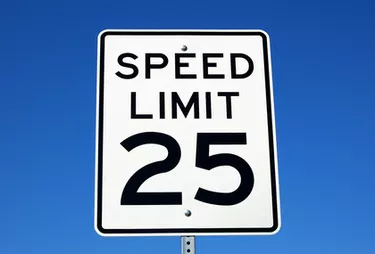
Automobile insurance premiums reflect speeding tickets on the insured's auto policy. USAA Media Relations said too many individual factors come into play to give specifics; however, they follow the general industry practices.
Record
Video of the Day
When an insured purchases a new auto insurance policy, the insurance company requests a copy of their driving record from the Department of Motor Vehicles. Depending upon the record, the underwriter may choose to request a copy every year or just periodically.
Video of the Day
Severity
Underwriters analyze the driving records, taking into account how many tickets the driver has, the amount of time between tickets and how fast the driver was going over the speed limit.
Insured

The underwriter reviews other risk factors, such as the age of the driver and the type of vehicle driven.
History
The company considers their business experience with the policyholder taking into account longevity, other polices and claims history.
Time Frame
A speeding ticket remains on the insured's insurance record for three years from the date the ticket was issued. If USAA doesn't pull the DMV record until two years later, the insured's increased premium will only last one year, assuming she doesn't receive another ticket.